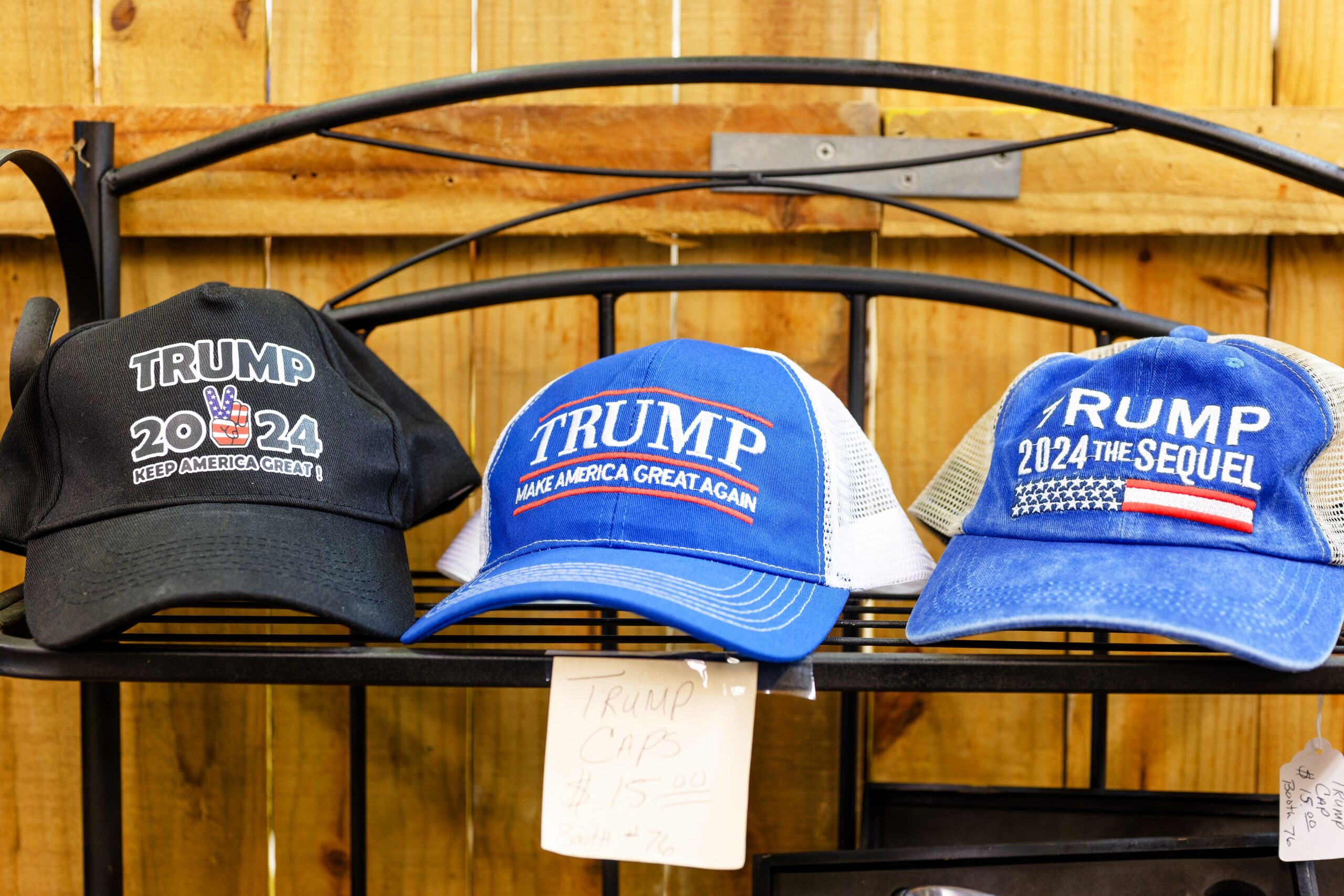 President Donald Trump campaign hats for 2024 presidential election for sale in Montgomery Alabama, USA.
[photo: Rick Lewis / Alamy]
President Donald Trump campaign hats for 2024 presidential election for sale in Montgomery Alabama, USA.
[photo: Rick Lewis / Alamy]
[This is an excerpt from an article in The Round Table: The Commonwealth Journal of International Affairs. Opinions expressed do not reflect the position of the Round Table editorial board.]
There is little point in being contemptuous of Trump when there is a real, angry, even ugly America out there that sees him as representing them. Liberals in New York or San Francisco have been talking to each other and did not reach them. Trump did.
He comes back to power at a time when America faces serious problems inside and outside the country. The challenge is whether he can rise above the forces he identified so well, to achieve an America they so want without breaking the back of the country they desperately wish to, as they see it, save.
There are grave dangers to the remaking of America through conduct of an administration as if of civil war. It would be calamitous if Trump in office eschews good governance and embarks on a trail only against the ‘other side’ and of destruction.
Make America Great Again (MAGA) is not a bad clarion call. Even America First. But only if they go in the right direction and do not trample America and the world.
To achieve MAGA, America must first look at itself and not go gaga, blaming the rest of the world for all its failings and frailties. There are big problems there, such as the low level of productivity, crumbling infrastructure, and huge disparity of income and wealth.
None of this is solved by blaming foreign imports, illegal immigrants, or reducing taxes on the rich and corporates. The way in which Trump ran the campaign that won him the election, and has picked the team for his administration, indicates his instinct is to fight and not to govern. America and the rest of the world are at a grave conjuncture in history.
As for the rest of the world, there will be a response. The world will forcibly turn its back on America and, even as exporting countries like China find short-term ways to circumvent tariffs thrown at them, in time they will trade more among themselves.
The Impact of the Trump Presidency on the Commonwealth Caribbean
Commonwealth joins global comments as Trump announces climate change accord withdrawal
America can become isolationist and live on its own, but that does not mean the rest of the world, however reduced, cannot reorganise trade, investment and political relationships. Various regional groupings are reaching out to one another as never before. Asean (Association of Southeast Asian Nations) is planning to work more closely with the GCC (Gulf Cooperation Council). The Global South is getting better organised. BRICS is becoming the go-to organisation.
China and India, Brazil, even Russia, are rising in stature. De-dollarisation is taking place, whatever the pace of displacement. Changes are taking place. They will heighten if Trump carries out in full his tariff and bullying threats.
Even Japan, Korea and Australia – traditional western allies in the Asia-Pacific – will have to reach out to their neighbours, if Trump squeezes them on trade and contributions to defence, as happened to Korea in his first administration. Especially if Europe and Nato are dumped or have their backs pushed to the wall. What point then the western alliance?
Every bullying Trumpian act is a step the towards full realisation of a multipolar world, as if there have not been enough missteps already, whether in Ukraine or Gaza.
Trump cannot harp on about America First as if it has not always been America first, even if he can rightly argue too many previous administrations have been cack-handed in the conduct of US foreign policy, resulting in America making a mess of things and suffering major setbacks.
However, he cannot pursue America First objectives on an America Only basis. All countries in the world promote and project their national interests, but they do so in a society of states and a community of nations whereby they recognise other state interests have to be accommodated. They forge common interests.
Munir Majid is with the Centre for International Affairs, Diplomacy and Strategy (IDEAS), London School of Economics, London, UK.



